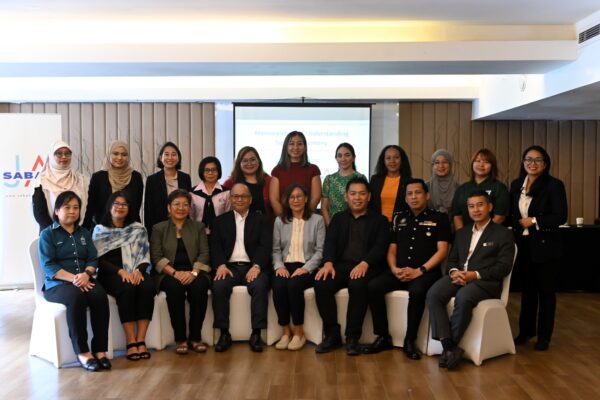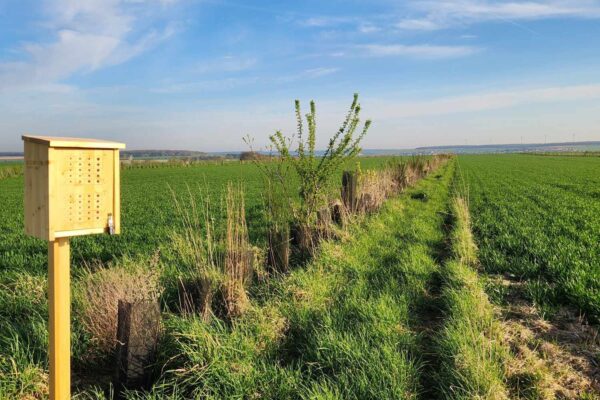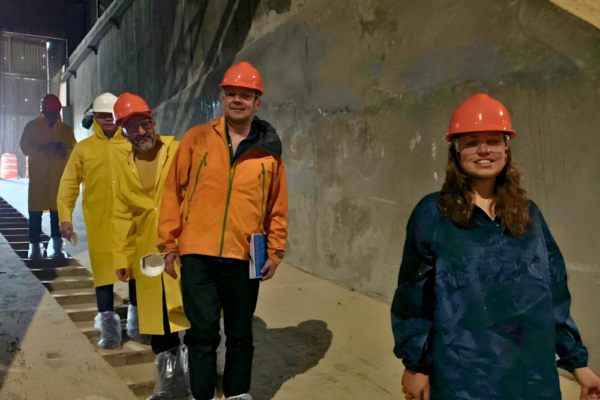Overnight, our lives were constrained. Our borders were closed, our movements restricted. We’ve been forced to stay at home and compelled to live in ways we couldn’t have imagined just a few weeks ago.
A virus which knows no bounds - which can travel anywhere at breakneck speed and infect anyone – has forced us to confront our own limitations and accept them.
This clashes with the world we’ve created: a world where ‘no limits’ has become an article of faith, embedded in our culture, economic systems, politics, and attitude to nature.
Like an x-ray, COVID-19 has exposed the cracks in this belief system.
We’ve seen, in shocking detail, how an ideology which rejects boundaries – in particular planetary ones – and which sees no limits in how we extract raw materials, in how we run our supply chains, in how we trade, and in our insatiable appetite to profit – threatens us all.
The US diverts a shipment of protective masks intended for Germany in an act described as “modern piracy”. European countries close their borders to the hundreds of thousands of low-paid migrant workers who harvest their fruit and vegetables. Farmers are forced to throw away thousands of litres of milk, as its price collapses .
Meanwhile, food bank queues grow longer by the day.
All of this reveals how our supply chains suffer from the unlimited extractive approach: which always seeks lower prices and bigger sales. An approach built on the delusion that people can always consume or work more. That looks for economies of scale even if it means killing thousands for jobs, while externalising the hardest work to those on the lowest pay.
These things have been taught “as the only way to do business”. Almost like a new religion appearing after the Second World War, people felt they had no limits, as they harnessed the power of unlimited access to fossil fuels, and international trade grew exponentially.
Yet now we see that they don’t work, the time has come to re-evaluate these orthodoxies.
Destroying the terroir
The first thing we must acknowledge is the human and natural limits of the places on Earth we source raw materials from.
Every landscape is an island of diversity, of culture. Each commodity comes from somewhere and is produced by someone. A tonne of cocoa from Ecuador is not equal to a tonne of cocoa from Ivory Coast, or a tonne of cocoa produced in Indonesia.
Each comes from a terroir, with different ecosystems, communities, geographies and trading realities. Terroir is a French word that defines the uniqueness of the culture and soil an agricultural product comes from. It’s often used for wines, but could equally apply to cocoa, coffee, wheat or vegetable oils.
Commoditisation, however, has been the dominant ideology on raw materials. And this is a creed that erases a product’s origin and history to make it a standard, almost industrial thing that can be traded an infinite number of times, by an infinite number of hands (even virtually) before it eventually gets consumed.
Commoditising erases the terroir, which in turn, means the livelihoods of the people surviving from them disappear, as they’re exposed to fluctuations in commodity prices and trade flows, with dramatic and dire consequences, including deforestation, poverty and forced labour.
So business leaders must ask themselves urgent questions: How commoditised should the raw materials I buy be? Should I be buying local? Can I accept not knowing where the products come from and who I buy them from? What story do I want to be associated to?
Consequently it will force us to reconsider how much we’re prepared to pay for raw materials: to find a balance between rewarding entrepreneurship, which is extremely important, and ending the abuses and destruction that taint our supply chains
If farmers get fair prices for their yields, they manage their farms better. Receiving a greater share of the profits from the commodities they produce will mean that they are less prone to cutting down trees to increase the size of their farms, or falling prey to other damaging practices such as child labour.
Solidarity in supply chains
Doing this will eventually create a new way for companies to work with the farmers supplying them with raw materials: founded on longer-term, deeper partnerships, rather than unlimited spot-buying and shifting suppliers.
This will inevitably challenge the concept of “responsible commodities” that doesn’t make sense. A raw material that is disconnected from the land and from the people who produce it will never be “responsible”. Once a company embraces the qualities of a terroir, by default it binds the buyer and the producer for the long-term. It reduces options for cost reductions; but it increases stability, which is necessary to reinvest in people and nature, and for regeneration.
The farmers too have a responsibility.
Only with the security provided by this stability can farmers truly be able to live by the limits of the earth: what they extract from it, and what they give back.
Ending the nonsense of factory farms; revitalising their soils after harvesting a crop; halting deforestation; reducing fertiliser and pesticide use.
In short, from the biggest global corporations down to the humblest farmer, we all have to revisit our notion of limits.
This is the only way to create solidarity and value in our supply chains. And it doesn’t mean that international trade will stop. Pepper, cocoa and many other products will still be grown and shipped around the world and that’s okay; as long as their history, uniqueness and identity travels with them.
As parts of Europe tentatively inch their way out of their lockdowns – and governments inject billions of debt and citizens' money to save the old economy – this re-evaluation of planetary and human limits is critical; in order to rebuild the systems shaken by this crisis into something more resilient, and of lasting benefit to humanity.


